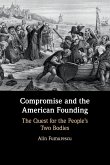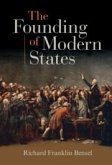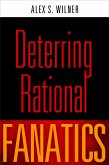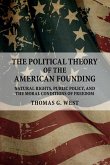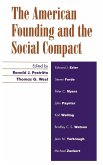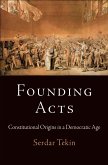Since the American Revolution, scholars and citizens have often assumed that dispassionate rationality, reciprocity, and nonviolent tolerance are necessary conditions for the sustained development of democracy. Accordingly, they reject oppositional parties that spurn consensus and terms of mutual respect--and often use force to accomplish their political goals--denouncing extremists as irrational and antidemocratic. Founding Fanatics questions this understanding, examining how moments of tension, violence, and extremism in the United States have sometimes served the pursuit of political equality. Noah Eber-Schmid focuses his analysis on the American Founding era, presenting case studies of the early memorialization of the Boston Massacre, popular debates over Shays' Rebellion, the thought and practices of the Democratic Societies, and the use of the French Revolution in political discourse. From this historical account of popular politics in the Founding era, Eber-Schmid draws new insights for theoretical approaches to contemporary American democracy, challenging assumptions that extremism is always a negative or antidemocratic force. By recognizing the role that democratic extremism has played in the development of American popular democracy, political theorists and citizens will better understand how such movements may contribute to the struggle to deepen and expand political equality and participation that continues today.
Bitte wählen Sie Ihr Anliegen aus.
Rechnungen
Retourenschein anfordern
Bestellstatus
Storno


